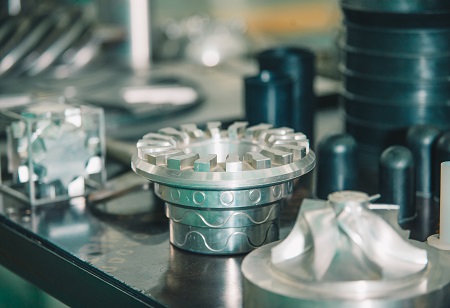
Innovative materials play a critical role in improving effectiveness, durability, and overall performance in today's industrial scene, which is undergoing rapid change. Precision engineering plastics, being a prime example of such materials, are engineered with extreme accuracy and attention to detail, allowing for precise and intricate designs to be created. They offer a wide range of properties, such as high strength, heat resistance, and chemical resistance, making them ideal for demanding industrial applications. With their ability to replace traditional materials like metal, precision-engineered plastics are revolutionizing industries by reducing weight, increasing efficiency, and lowering costs. They offer exceptional strength, chemical resistance, and thermal stability, making them suitable for demanding environments. Consequently, with their ability to be molded into intricate shapes and their lightweight nature, precision engineering plastics are revolutionizing industries such as automotive, aerospace, electronics, and healthcare.
A hallmark of precision engineering plastics is their remarkable adaptability to meet specific industrial requirements. These plastics can be finely tuned to possess an array of characteristics, including high tensile strength, impact resistance, low friction, flame resistance, and thermal stability. This inherent versatility positions them as a preferred choice in sectors such as automotive, aerospace, electronics, and medical devices. In the healthcare industry, precision engineering plastics are widely used for their ability to be tailored to specific applications. For example, in medical devices such as prosthetics, these plastics can be customized to provide high tensile strength for durability, low friction for smooth movement, and flame resistance for safety during use.
Precision engineering plastics play a pivotal role in boosting industrial efficiency and performance. Their lightweight nature contributes to reduced product weight, translating into enhanced fuel efficiency in the automotive and aerospace domains. Furthermore, their low friction properties are invaluable for manufacturing components that necessitate seamless movement, thereby diminishing wear and energy consumption. For example, precision engineering plastics are widely used in the production of gears and bearings for machinery and equipment. These plastics provide excellent lubricity and reduce friction, resulting in smoother movement and increased energy efficiency in industrial processes. , they can withstand high temperatures and resist corrosion, making them ideal for applications in harsh environments such as chemical plants or offshore drilling rigs.
Industrial applications subject materials to rigorous conditions, including extreme temperatures, aggressive chemicals, and mechanical stress. Precision engineering plastics excel in these challenging environments due to their exceptional durability and resistance. They maintain structural integrity even after prolonged exposure to demanding conditions, thus extending the lifespan of products and curbing maintenance costs. For example, in the chemical industry, precision engineering plastics such as polytetrafluoroethylene (PTFE) are used to line pipes and tanks to resist corrosion from highly reactive chemicals. This not only ensures the safety and integrity of the equipment but also reduces the need for frequent maintenance and replacement, resulting in significant cost savings for the chemical plant.
In a world where sustainability is a pressing concern, precision-engineered plastics offer a responsible alternative to traditional materials. Their durability and extended lifespan translate to reduced material consumption and waste generation, aligning with eco-friendly practices. Moreover, these plastics' lightweight nature contributes to energy savings during both usage and transportation, making a positive impact on our environment. For example, in the automotive industry, the utilization of precision-engineered plastics for components like bumpers and interior panels can significantly reduce vehicle weight. This not only makes electric vehicles more practical but also contributes to greener transportation by boosting their range, improving fuel efficiency, and lowering carbon emissions.
The domain of precision engineering plastics continues to advance alongside technology. Ongoing research and development are giving rise to plastics with even more specialized properties and applications. From biocompatible plastics for medical implants to high-temperature-resistant materials for aerospace components, the potential for innovation within this field is virtually boundless. For example, researchers are currently exploring the use of precision engineering plastics in the production of lightweight and durable components for electric vehicles. By using these advanced plastics, car manufacturers can reduce the weight of the vehicle, improving its energy efficiency and extending its range. Additionally, these plastics can withstand high temperatures and provide excellent electrical insulation, ensuring the safety and reliability of the vehicle's electrical systems.
Precision engineering plastics have emerged as pivotal elements in modern industrial applications. Their adaptable characteristics, contributions to efficiency and sustainability, and constant innovation are redefining material selection in industries. As industries continue to evolve, precision engineering plastics stand at the forefront of innovation, propelling progress and shaping the future of industrial manufacturing. With their ability to enhance the performance and reliability of electrical systems in vehicles, precision engineering plastics have become indispensable in the automotive industry.
We use cookies to ensure you get the best experience on our website. Read more...